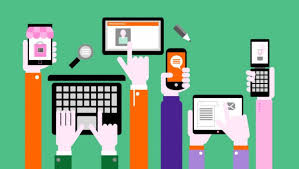**The Edvocate is pleased to publish guest posts as way to fuel important conversations surrounding P-20 education in America. The opinions contained within guest posts are those of the authors and do not necessarily reflect the official opinion of The Edvocate or Dr. Matthew Lynch.** Leon Sterling, Swinburne University of Technology Bill Shorten’s recent announcement that, if elected, a Labor Government would “ensure that computer coding is taught in every primary and secondary school in Australia” has brought attention to an increasing world trend. Estonia introduced coding in primary schools in 2012 and the UK followed suit last year. US-led …
Continue reading “An education for the 21st century means teaching coding in schools”








